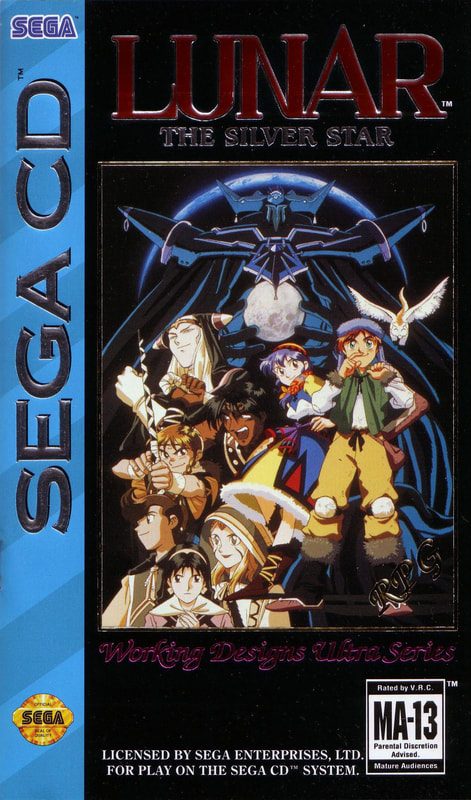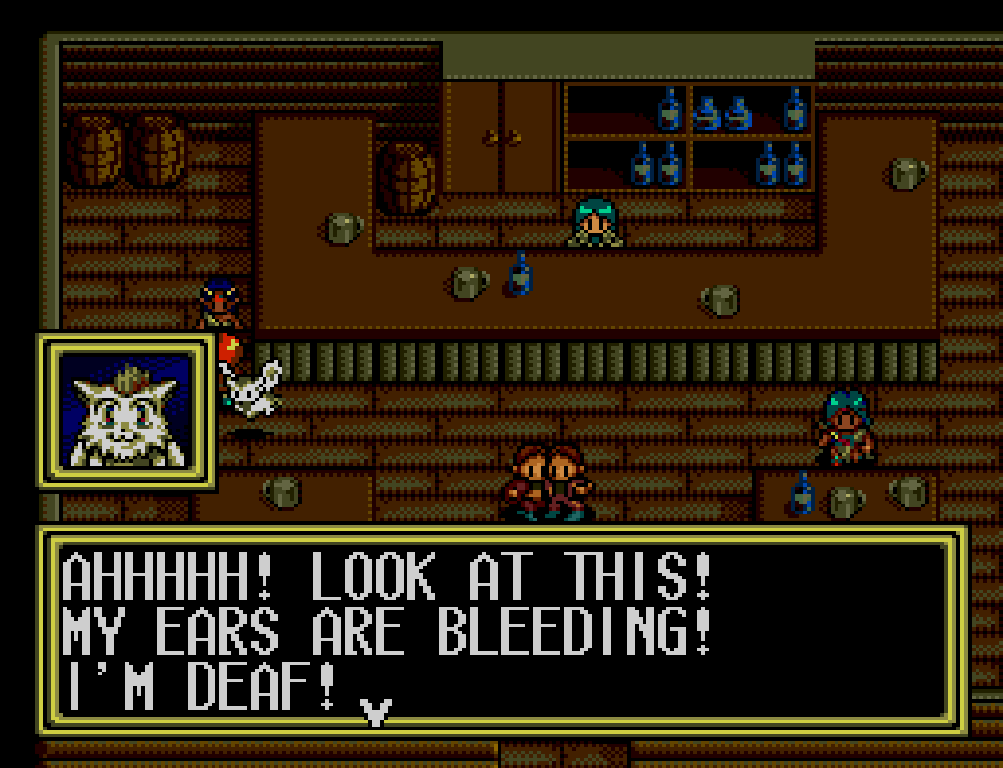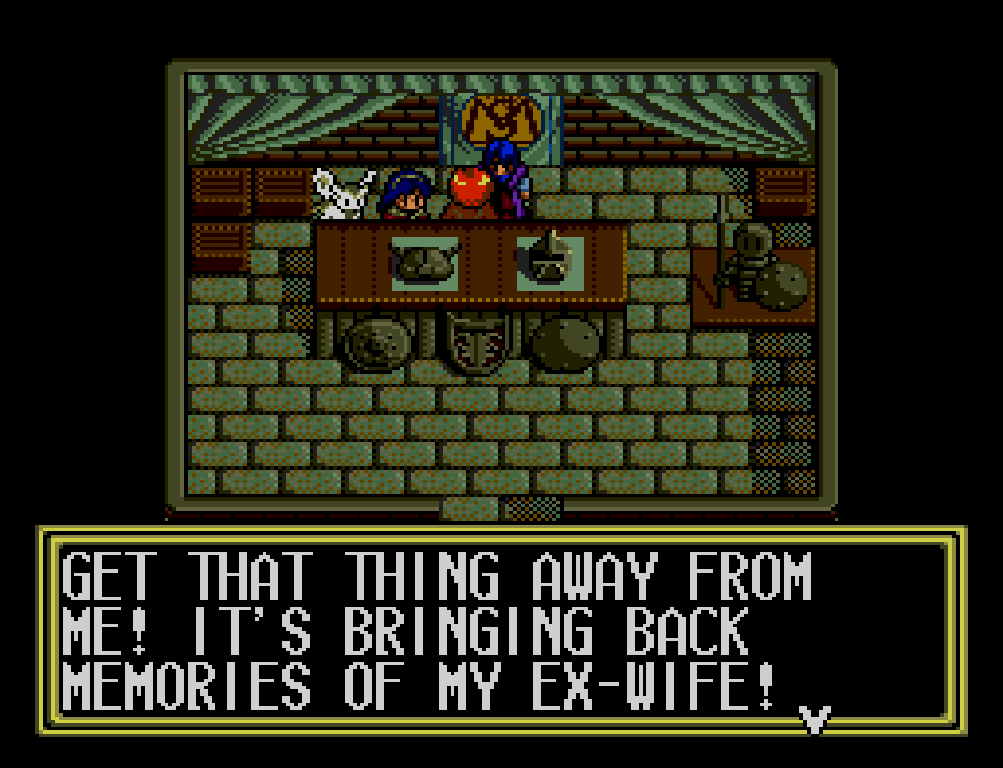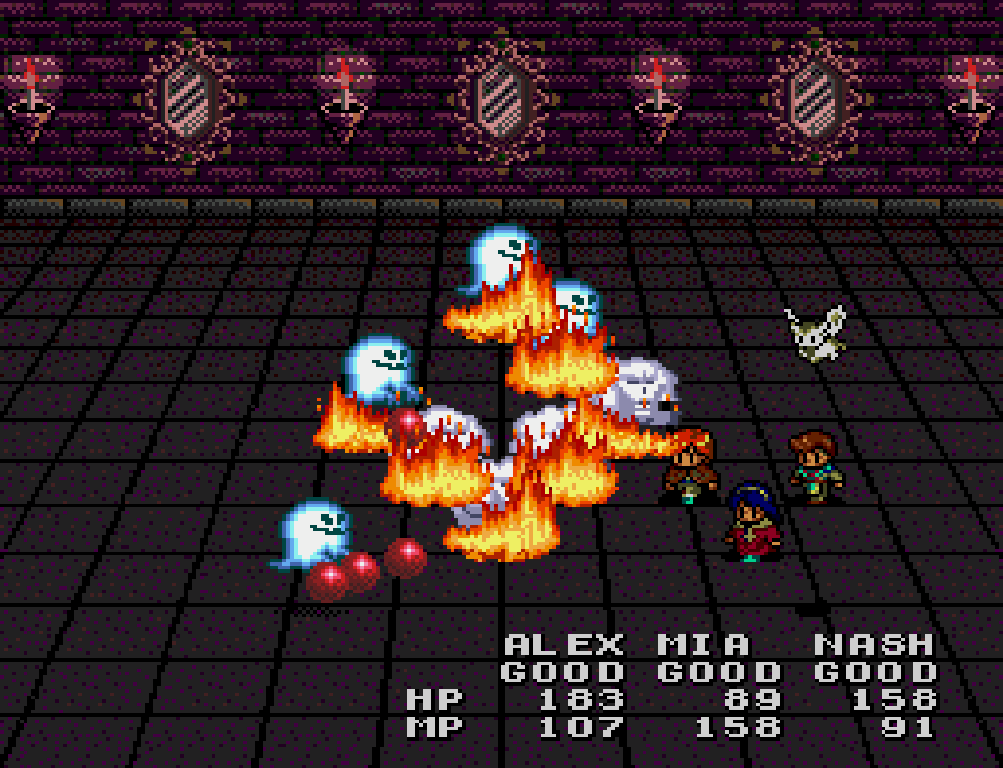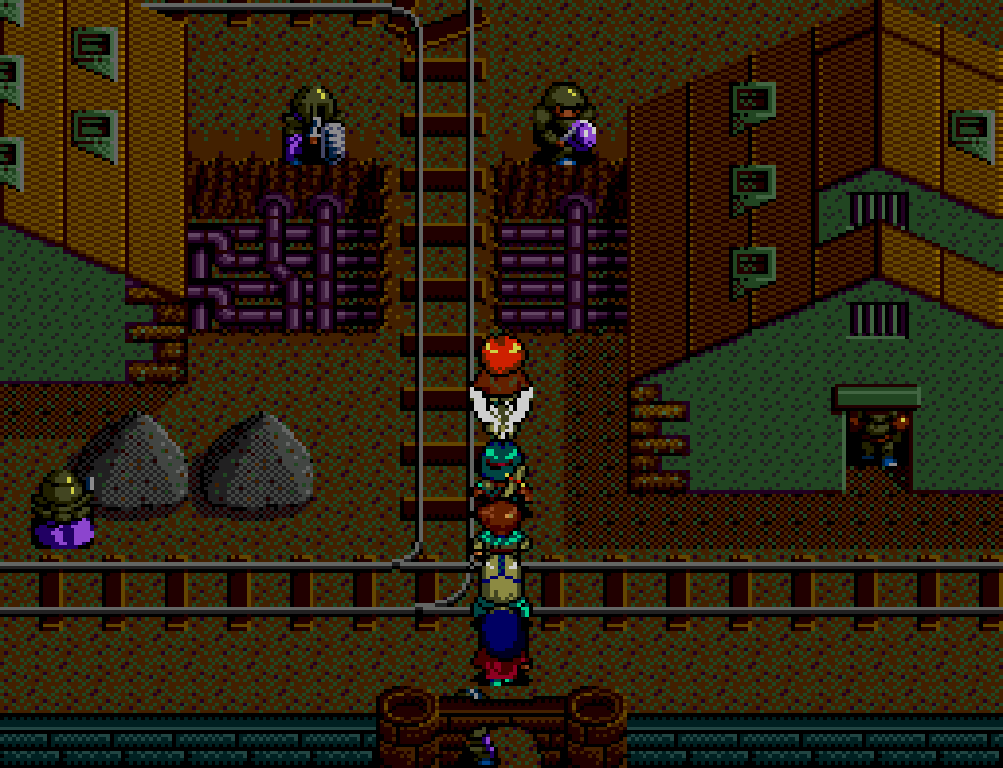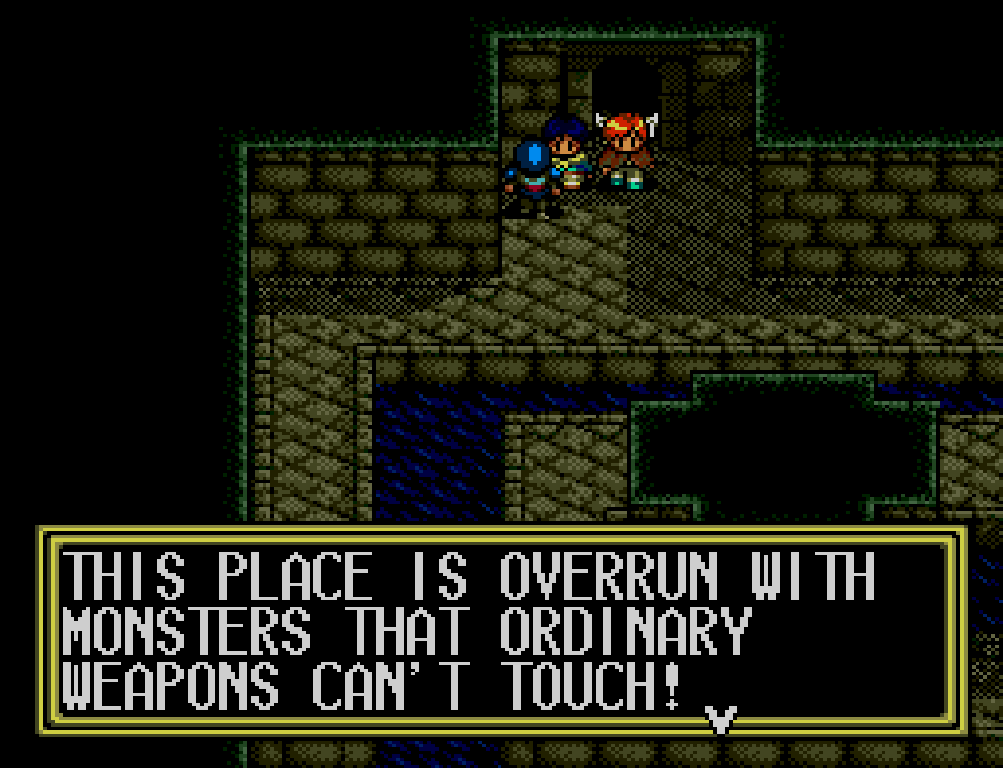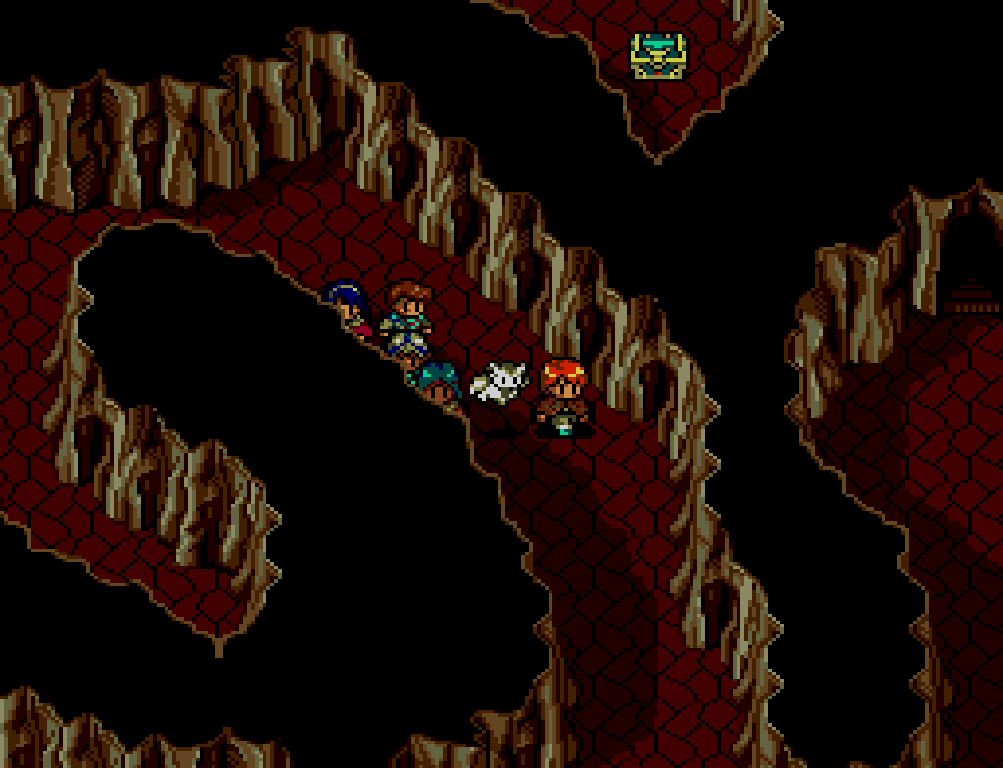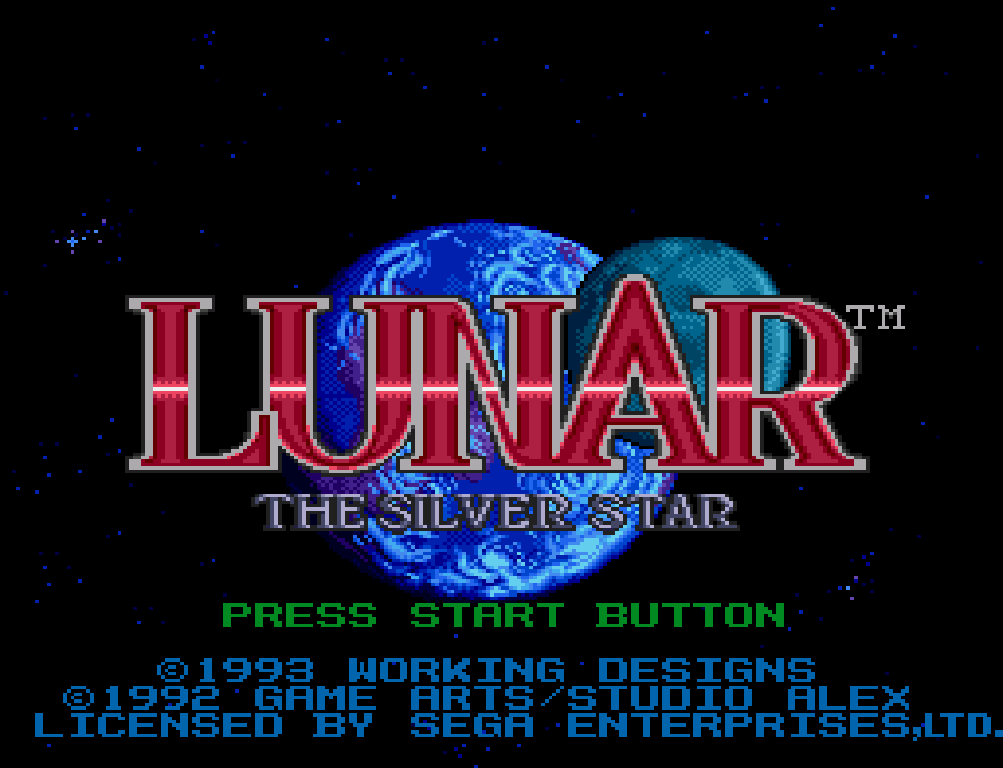REVIEW | MEGA-CD
LUNAR: THE SILVER STAR (SCD)
Over the last thirty years, hundreds of games have attempted to mine the JRPG blueprint. Those that follow the genre’s staples most strictly, tend not to be especially memorable or distinguished. Too often, they rely on the propagating of lazy stereotypes and dated mechanics. This, despite good intentions, has often seen such games descend into a parody of themselves. Male hero with a big sword and shiny hair; loud and manic sidekick; squeaky girl dressed inexplicably in a maid’s uniform. Unsurprisingly, box-ticking has often been synonymous with uninspired storytelling. Originality is less important than heart: Lunar: The Silver Star knew this and never sought to reinvent the wheel. However, Game Arts’ classic, which landed in the US in late 1993, acts as a perfect example of how a few fundamentals separate the greats from the pretenders.
It’s a formula the developer used to even greater effect with Grandia a few years later. Lunar: The Silver Star is a must-play for those who fell in love with Justin’s journey. Parallels are numerous: both games see small-town beginnings, with friends living innocent, coddled lives that blossom into large-scale adventures. Both see characters coming and going, the party ever-evolving, the world moving on, skilfully articulating tales of love and loss. Both capture the giddy magic of spontaneous adventure, confronting and exploring the unknown. Both get that, no matter the size or the ambition of the game, it can only work if the characters at the centre of it are interesting enough, their personalities relatable enough, to invest in. Lunar brims with charm, its world and its characters form a perfect compliment and the rich, fantasy land that lies in wait is a joy to become lost in.
It’s a formula the developer used to even greater effect with Grandia a few years later. Lunar: The Silver Star is a must-play for those who fell in love with Justin’s journey. Parallels are numerous: both games see small-town beginnings, with friends living innocent, coddled lives that blossom into large-scale adventures. Both see characters coming and going, the party ever-evolving, the world moving on, skilfully articulating tales of love and loss. Both capture the giddy magic of spontaneous adventure, confronting and exploring the unknown. Both get that, no matter the size or the ambition of the game, it can only work if the characters at the centre of it are interesting enough, their personalities relatable enough, to invest in. Lunar brims with charm, its world and its characters form a perfect compliment and the rich, fantasy land that lies in wait is a joy to become lost in.
Lots to see and do: Lunar is perfect for those who like to explore RPG towns, top-to-bottom
Beginning in the small town of Burg, young dreamer Alex decides to become an adventurer, to emulate the legendary Dragonmaster Dyne, for whom a statue lies in tribute. Along with his unusual pet Nall and friends, the scattergun Ramus and songstress Luna, Alex embarks on a journey that sees him exploring every corner of the globe. He traipses the mean streets of Meribia, learns magic on the floating city of Vane, saves a village from a plague and gets a hot-air balloon flight-ready. Twice.
Especially heartening to Mega-CD owners, Lunar’s defining strengths are owed to the additional hardware. Most immediately noticeable are the lovely and relatively numerous FMV sequences, with a bright and pretty animated vibe. Whilst they’re mainly deployed to introduce new characters, a couple of meetings with the white dragon prove especially memorable. These are accompanied by snippets of dialogue and though the US delivery is a little corny around the edges, it’s worth remembering that voicing of any sort in a JRPG back in ‘93 was virtually unheard of.
Especially heartening to Mega-CD owners, Lunar’s defining strengths are owed to the additional hardware. Most immediately noticeable are the lovely and relatively numerous FMV sequences, with a bright and pretty animated vibe. Whilst they’re mainly deployed to introduce new characters, a couple of meetings with the white dragon prove especially memorable. These are accompanied by snippets of dialogue and though the US delivery is a little corny around the edges, it’s worth remembering that voicing of any sort in a JRPG back in ‘93 was virtually unheard of.
FOCAL POINT: TRANSFER AFFECTION
So often a bone of contention amongst gamers, for once the Japan-to-US translation proves a real highlight. When it needs to, Lunar sticks to a direct, earnest delivery, meaning the main body of the storyline comes across clearly and without confusion. The translators go off-piste with some of the NPCs however, with a smattering of marvellous pop culture references to Westworld, The Stepford Wives and ABBA. There are some marvellous little details, such as the variety of hilarious responses from merchants to the player trying to sell key items (try selling the Silver Spire Mirror to the shopkeepers of Vane, for starters). Alex’s companion Nall comes out with a range of withering put-downs that seem unlikely to have been part of the original script, but this too is no bad thing. Game Arts would tighten things up with a more consistent, serious tone for Grandia and whilst like-for-like, Lunar’s story comes off second-best, it remains a lovely story to play through, with its moments of oddball humour lending its narrative a shot in the arm.
The most seismic jump afforded by the CD hardware is highlighted in Lunar’s music. To say Game Arts took advantage of the audio boost would be a major understatement. Its remarkable, diverse soundtrack is sublime, one of the best of its era. Beautiful compositions fit each of the emotional moods evoked (sometimes transcendent, sometimes menacing) throughout the story, adding incalculably to the atmosphere. As befits a nineties role-playing game, it does of course come with an infectious battle theme too.
At first glance, it could be argued that Lunar isn’t the prettiest role-playing game. The sprites look ordinary, a little bit bloated and basic. Battle locations are flat and ugly. Towns appear drab and some of the maze-like dungeons a little similar, whilst the system’s limited palette results in odd shades of green populating the hair and outfits of certain characters, when it clearly shouldn’t be there. However, there’s a case to be made for its more muted, mature appearance, with the gritty appearance apparently inspired more by the geography of Europe than that of Japan. This style lends weight to the more foreboding settings, particularly the enslaved mining town of Ruid. The menus are minimalist and clearly presented, though there are disappointingly few special effects to liven up the battles.
At first glance, it could be argued that Lunar isn’t the prettiest role-playing game. The sprites look ordinary, a little bit bloated and basic. Battle locations are flat and ugly. Towns appear drab and some of the maze-like dungeons a little similar, whilst the system’s limited palette results in odd shades of green populating the hair and outfits of certain characters, when it clearly shouldn’t be there. However, there’s a case to be made for its more muted, mature appearance, with the gritty appearance apparently inspired more by the geography of Europe than that of Japan. This style lends weight to the more foreboding settings, particularly the enslaved mining town of Ruid. The menus are minimalist and clearly presented, though there are disappointingly few special effects to liven up the battles.
The turn-based combat system takes a little getting used to. Commands are easy enough to grasp, but characters can walk only a prescribed number of steps each turn, something that initially requires some sussing out as you can’t designate them. In some cases, your lead character plays the role of punchbag, as enemies tend to attack the nearest party member to the front. This can make for some slightly odd boss battles, but on the whole, the system works well. Elsewhere, party members level-up at a rapid pace, maintaining a constant feeling of progress, though spells tend to become less relevent as the adventure nears its conclusion, meaning a couple of party members start to become a liability.
Alex moves fluidly and with speed, whilst the player is given quick hints on entering certain towns, so that you never lose track of short-term objectives. The only blemishes, in terms of usability, come from a curious lack of inns (full healing requires the occasional shrine or a specific individual in some of the towns) and the game failing to give performance statistics for weapons and armour, before purchasing them.
Alex moves fluidly and with speed, whilst the player is given quick hints on entering certain towns, so that you never lose track of short-term objectives. The only blemishes, in terms of usability, come from a curious lack of inns (full healing requires the occasional shrine or a specific individual in some of the towns) and the game failing to give performance statistics for weapons and armour, before purchasing them.
Lunar: The Silver Star deserves praise for its mostly-restrained dungeon layouts. It’s heartening to see a game that never strays into the realm of the ridiculous, 20-floor marathons that leave you cursing endless battles and a lack of save points (you can save almost anywhere). Of course, in time, some of the caverns seem a little derivative, but the brisk pace and ample treasure chests mean things are rarely dull. It isn’t as long as Dragon Quest V though should take a little longer to beat than the modestly-sized Final Fantasy IV. There’s no doubt you’ll want to play it to completion as it holds the attention just as effectively as either of these 16-bit classics.
Extortionate prices notwithstanding, Lunar: The Silver Star is a great RPG option for those wishing to get the most from their Mega-CD. An uncomplicated but effective story is lit up by witty dialogue, whilst stunningly beautiful music adds extra cadence to an affecting and upbeat role-playing adventure. Does it rank amongst Squaresoft’s golden era of Super Nintendo output? Not quite, but it was instrumental in paving the way for even greater works from Game Arts and remains, without a doubt, one of the finest RPGs ever to grace a SEGA system.
Extortionate prices notwithstanding, Lunar: The Silver Star is a great RPG option for those wishing to get the most from their Mega-CD. An uncomplicated but effective story is lit up by witty dialogue, whilst stunningly beautiful music adds extra cadence to an affecting and upbeat role-playing adventure. Does it rank amongst Squaresoft’s golden era of Super Nintendo output? Not quite, but it was instrumental in paving the way for even greater works from Game Arts and remains, without a doubt, one of the finest RPGs ever to grace a SEGA system.
MORE 16-BIT JRPG CLASSICS REVIEWED...
